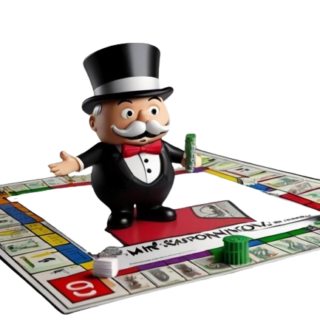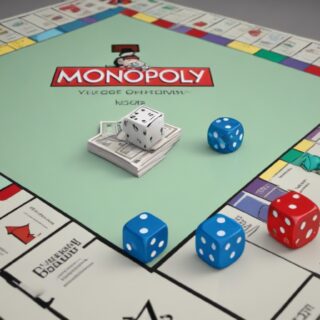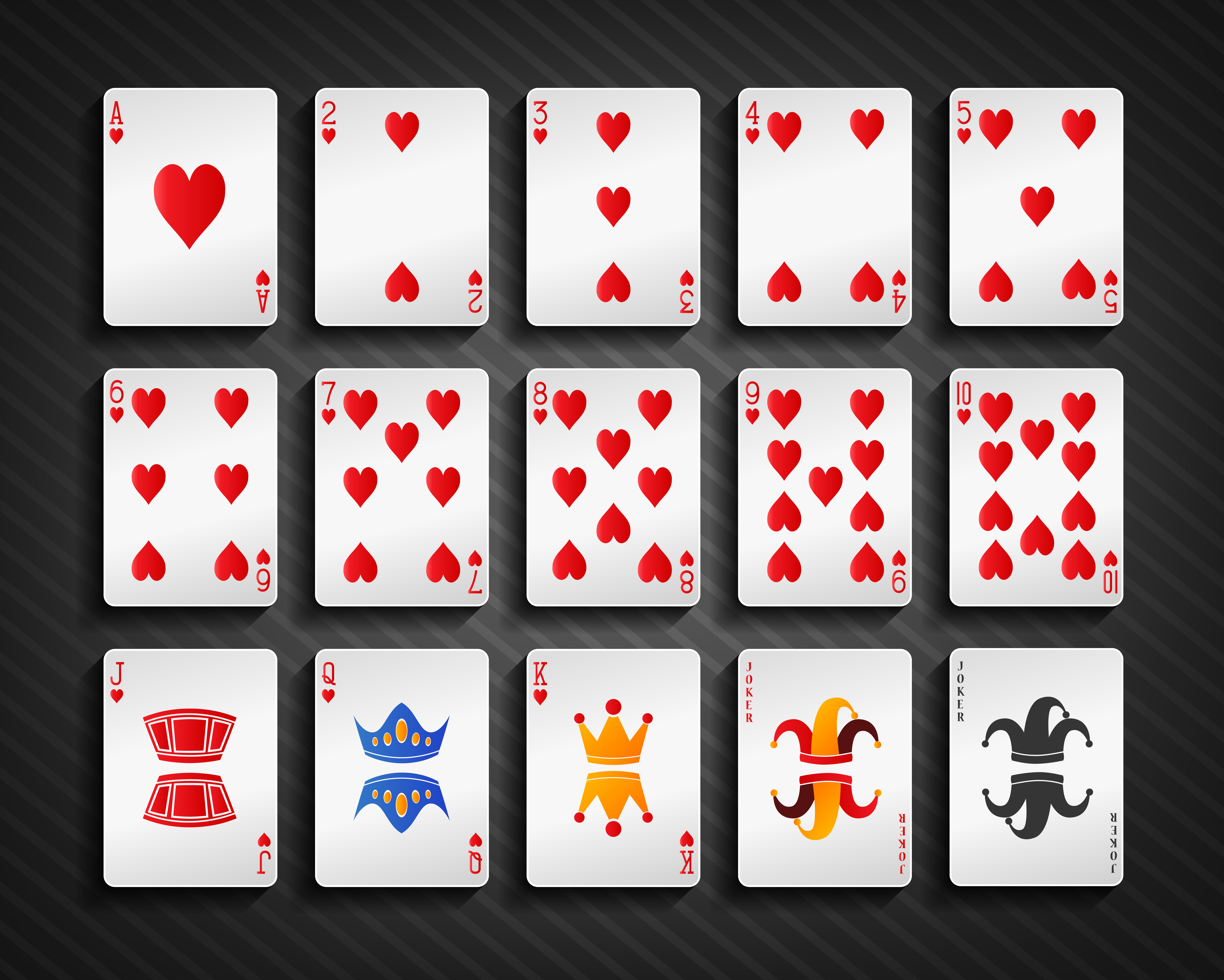Mastering Monopoly Deal: Understanding the “Just Say No” Card
Monopoly Deal is a fast-paced card game that requires strategic thinking and quick decision-making. One of the most powerful cards in the game is the “Just Say No” card, which can completely change the course of play. Let’s delve into the rules and strategies for using the “Just Say No” card effectively:
In Monopoly, as in life, strategic choices and calculated risks can turn the tides of fortune.
The Power of "Just Say No"
- Card Effect: The “Just Say No” card allows you to negate the action of another player’s card that affects you. This can include action cards that would make you pay rent, give away properties, or perform other unfavorable actions.
- Strategic Value: The “Just Say No” card can be a game-changer, especially when used at the right moment. It can protect your assets, thwart opponents’ plans, and turn the tide of the game in your favor.

How to Use "Just Say No"
- Timing: The key to using the “Just Say No” card effectively is timing. Wait until another player plays a card that directly affects you before using it.
- Announcing the Card: When you play the “Just Say No” card, announce that you are using it and specify which action you are negating. This helps clarify the play for all players.
- Discarding After Use: After you use the “Just Say No” card, discard it into the discard pile. It cannot be used again in the same game.
Strategic Considerations
- Bluffing: Sometimes, holding onto the “Just Say No” card without using it can make opponents think you don’t have it. This can lead them to play their cards more freely, allowing you to save the “Just Say No” card for a more critical moment.
- Assessing Threats: Keep an eye on your opponents’ cards and actions to anticipate when they might play a card that could harm you. This can help you decide when to use the “Just Say No” card for maximum impact.
Conclusion
The “Just Say No” card in Monopoly Deal is a potent tool that can protect your assets and disrupt your opponents’ plans. By understanding the rules and strategies for using this card effectively, you can become a more formidable player and increase your chances of winning in this thrilling card game.
What comes with the game
Here’s a table outlining the components included in a standard Monopoly game:
| Component | Description |
|---|---|
| Game Board | The board consists of 40 spaces representing properties, railroads, utilities, and special spaces like Chance and Community Chest. Players move around the board buying properties and collecting rent. |
| Tokens | Tokens represent players on the board and include classic items like the thimble, top hat, and car. Players choose a token at the beginning of the game. |
| Money | Monopoly money comes in different denominations and is used to buy properties, pay rent, and manage finances throughout the game. |
| Property Deeds | Deeds represent ownership of properties and include information such as purchase price, rent cost, and building costs. Players collect deeds when they buy properties. |
| Houses and Hotels | Players can purchase houses and hotels to increase rent on their properties. Houses are placed on properties to indicate rent increases, and hotels replace houses for higher rent. |
| Chance and Community Chest | These cards are drawn when a player lands on the corresponding space. They contain instructions that can be beneficial or detrimental to the player, such as paying or receiving money, or moving to a different space on the board. |
| Dice | Monopoly uses two six-sided dice for movement around the board. Players roll the dice to determine how many spaces to move on their turn. |
| Banker’s Tray | The banker manages the game’s money and properties. The banker’s tray includes compartments for the different denominations of money and property deeds. |
| Rules | The rulebook outlines how to play the game, including setup, gameplay, and winning conditions. It also includes information on optional rules and variations. |
| Mortgaged Property Cards | When a property is mortgaged, a card is placed on the property to indicate that it cannot collect rent until the mortgage is paid off. Players can mortgage properties to raise funds. |
| Houses and Hotels Tokens | These tokens are used to represent houses and hotels when purchased by players. They are placed on properties to indicate the level of development and the increased rent value. |
Bluffing and Assessing threats in Monopoly
Here’s a table outlining the components included in a standard Monopoly game:
| Strategy | Description |
|---|---|
| Bluffing | Bluffing in Monopoly involves making your opponents believe you have a stronger position than you actually do. This can be done by confidently bidding on properties or acting uninterested in certain properties to mislead other players. Bluffing can be effective in forcing opponents to make suboptimal decisions, such as overbidding on properties or selling valuable properties to you at a lower price. |
| Assessing Threats | Assessing threats in Monopoly involves analyzing your opponents’ positions and potential actions to anticipate their next moves. This includes monitoring their cash reserves, property holdings, and overall strategy. By identifying players who are close to completing property sets or who pose a significant threat in terms of cash reserves, you can adjust your strategy to minimize their impact and |
FAQ
In Monopoly, when a player declines to purchase an unowned property or cannot afford to pay a debt, the property goes up for auction. Players take turns bidding on the property until the highest bidder wins.
In Monopoly, bluffing can be used to bid confidently on properties, act uninterested in certain properties, or convey a false sense of security to opponents.
Assessing threats in Monopoly involves analyzing opponents’ positions and potential actions to anticipate their next moves. This includes monitoring their cash reserves, property holdings, and overall strategy.
By assessing threats, players can adjust their strategy to minimize opponents’ impact and capitalize on opportunities. It also helps in recognizing when opponents are bluffing and when they genuinely pose a risk.
Ready to roll the dice and take on the challenge of becoming the ultimate property tycoon?
Set up the board, and let the wheeling and dealing begin!
Time to buy, sell, and trade your way to victory in the timeless game of Monopoly.
Who will build the biggest empire and bankrupt their opponents? Find out now by starting your Monopoly adventure


